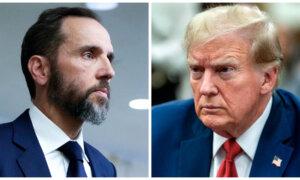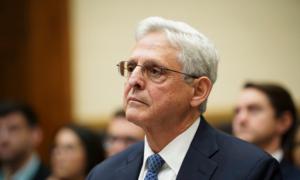The federal judge overseeing one of the former president’s cases made the hint in an order this week
The Washington judge overseeing the election-related case against former President Donald Trump suggested that the trial, initially set for March 4, might be delayed, noting that the special counsel is not permitted to file substantive motions without permission.
The restriction is in place while an appeal from the former president, based on presidential immunity grounds, is considered in a higher court.
In an order issued Thursday, U.S. District Judge Tanya Chutkan clarified that the March 4 trial date, set in August of last year, was intended to give both President Trump’s team and the special counsel time to prepare for the case. However, amid President Trump’s ongoing appeal, the federal judge paused the case in December. On Thursday, she decided to maintain this pause.
“Diligent defense counsel will need to conduct a preliminary review of each substantive motion the government files in order to know whether they need to take further action,” the judge wrote. “While that is not a major burden, it is a cognizable one.”
As a result, she ordered that the federal court adopt the defendant’s recommendation to forbid the parties from filing “any further substantive pretrial motions without first seeking leave from the court.” She also reaffirmed that the defendant “forfeits no arguments or rights by choosing not to respond at this time.”
The ruling also hinted that the several weeks that have elapsed since his appeal to the higher court will not impact the timeline of the election-related case when the pause ends. “Contrary to [the] defendant’s assertion, the court has not and will not set deadlines in this case based on the assumption that he has undertaken preparations when not required to do so,” the Obama-appointed judge wrote.
“Because the stay order appears to have been interpreted differently by the parties, the court will clarify: If [the] defendant wishes to raise objections to the government’s productions, he may do so without any risk of forfeiture if and when the mandate is returned and the court sets a new schedule,” Judge Chutkan wrote. “In the meantime, he is not required to carry any meaningful burdens with respect to those productions,” she added.
While it’s not clear whether her comment specifically signals that a trial delay is possible, several weeks have passed since she issued the appeal-related pause. President Trump’s case before the District of Columbia’s Circuit Court of Appeals, asserting he has presidential immunity, is still underway.
Judge Chutkan also wrote that the former president could issue more objections to any recent filings by the special counsel, should the appeals court send the case back while she sets a new schedule.
There could be other scheduling issues for the Washington proceedings, as President Trump is slated to face another trial in Florida this May. This separate case, also brought by Mr. Smith, accuses the former president of illegally mishandling classified documents.
Judge Chutkan denied the former president’s request to hold Mr. Smith in contempt for continuing to file notices and motions with the court, despite the earlier pause in the case. She stated that the prosecution was not acting in “bad faith.” The Trump legal team had argued that Mr. Smith’s filings were a distraction from their appeal on presidential immunity grounds.
‘Pandora’s box’
In their appeal, President Trump’s attorneys argued that he has immunity from prosecution asserting that his actions following the 2020 election were part of his official presidential duties.
The case has significant ramifications for both the criminal case against President Trump and the legally untested question of whether a former president can be prosecuted for actions taken while in office. Some analysts suggest that the case may eventually be taken up by the U.S. Supreme Court. In December, the Supreme Court declined a request from Smith for a swift ruling on the matter and sent it back to the lower court.
Earlier this month, Trump’s lawyer John Sauer appeared before the D.C. Circuit Court of Appeals and argued that the court system cannot investigate a former president’s official activities. He stated that the Smith cases, among others, would represent a dramatic shift from centuries of U.S. history. Furthermore, they argued that such a precedent could lead to further politically motivated cases against future presidents.
“To authorize the prosecution of a president for official acts would open a Pandora’s box from which this nation may never recover,” said Mr. Sauer, a former solicitor general for Missouri.
“If a president has to look over his shoulder or her shoulder every time he or she has to make a controversial decision and wonder if ‘after I leave office, am I going to jail for this when my political opponents take power?’ that inevitably dampens the ability of the president,” he added.
President Trump has often stated on Truth Social that he has “full immunity.” He again made that assertion this week.
“A president of the United States must have full immunity, without which it would be impossible for him/her to properly function,” President Trump wrote Thursday.
“Any mistake, even if well intended, would be met with almost certain indictment by the opposing party at term-end. Even events that ‘cross the line’ must fall under total immunity, or it will be years of trauma trying to determine good from bad.”
Original News Source Link – Epoch Times
Running For Office? Conservative Campaign Consulting – Election Day Strategies!


